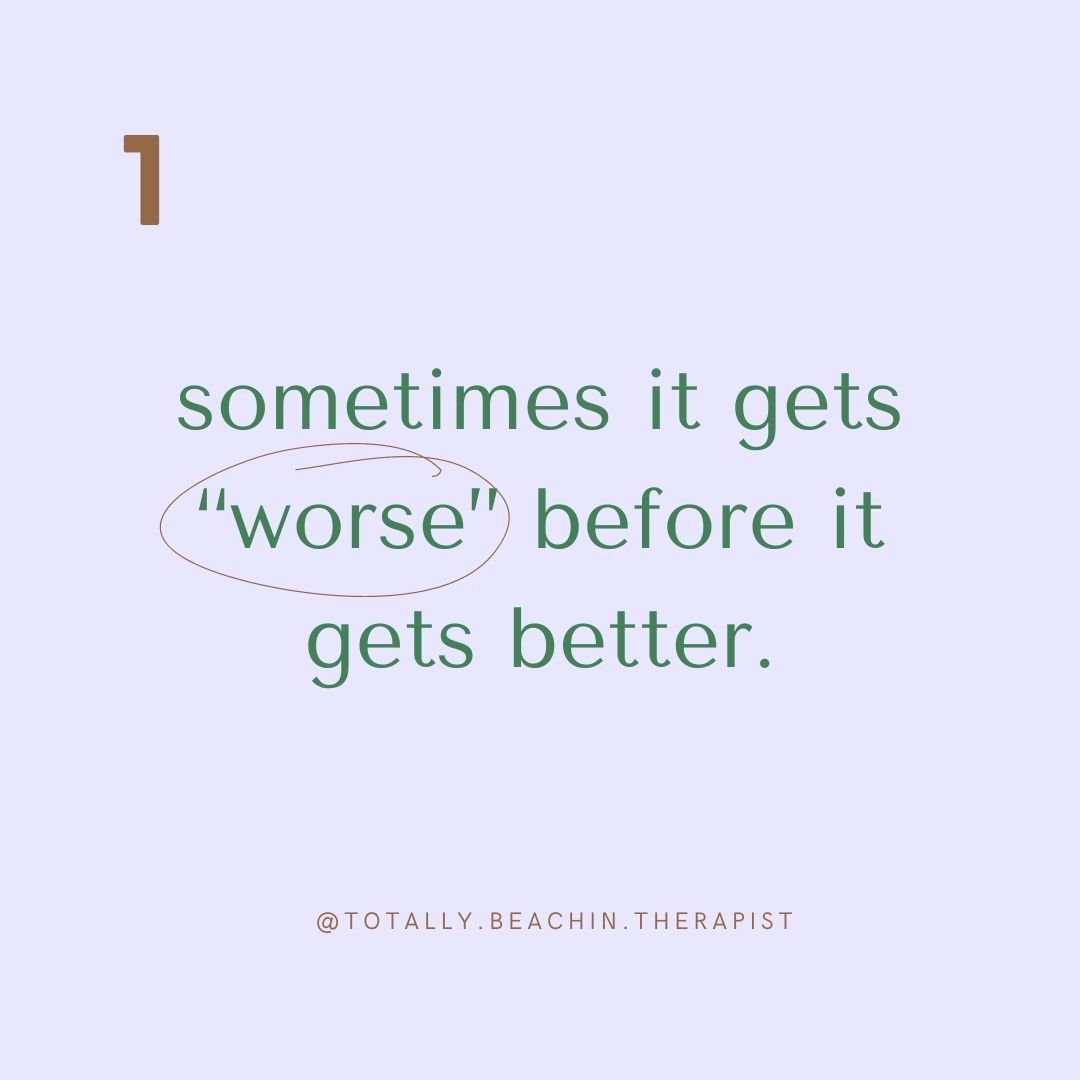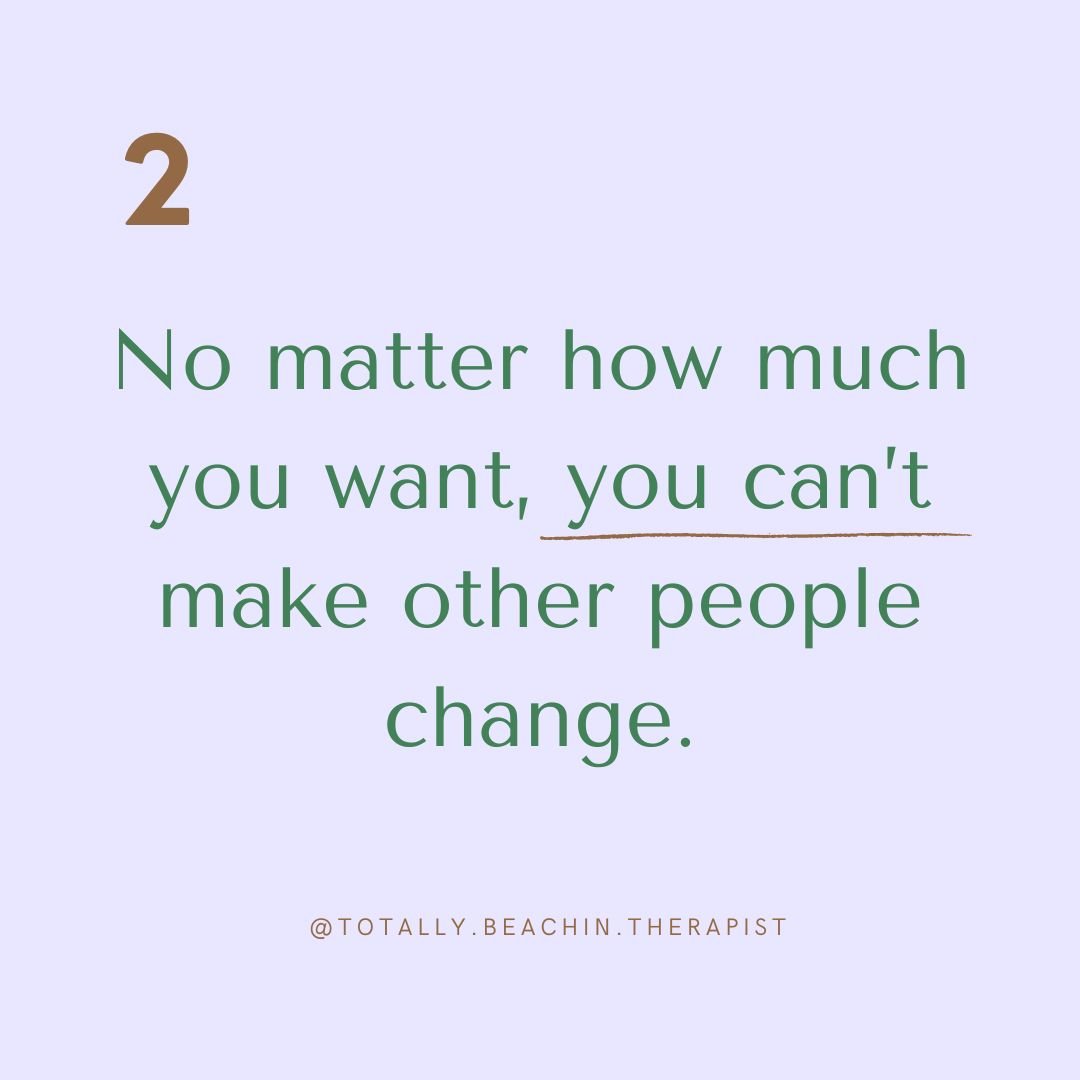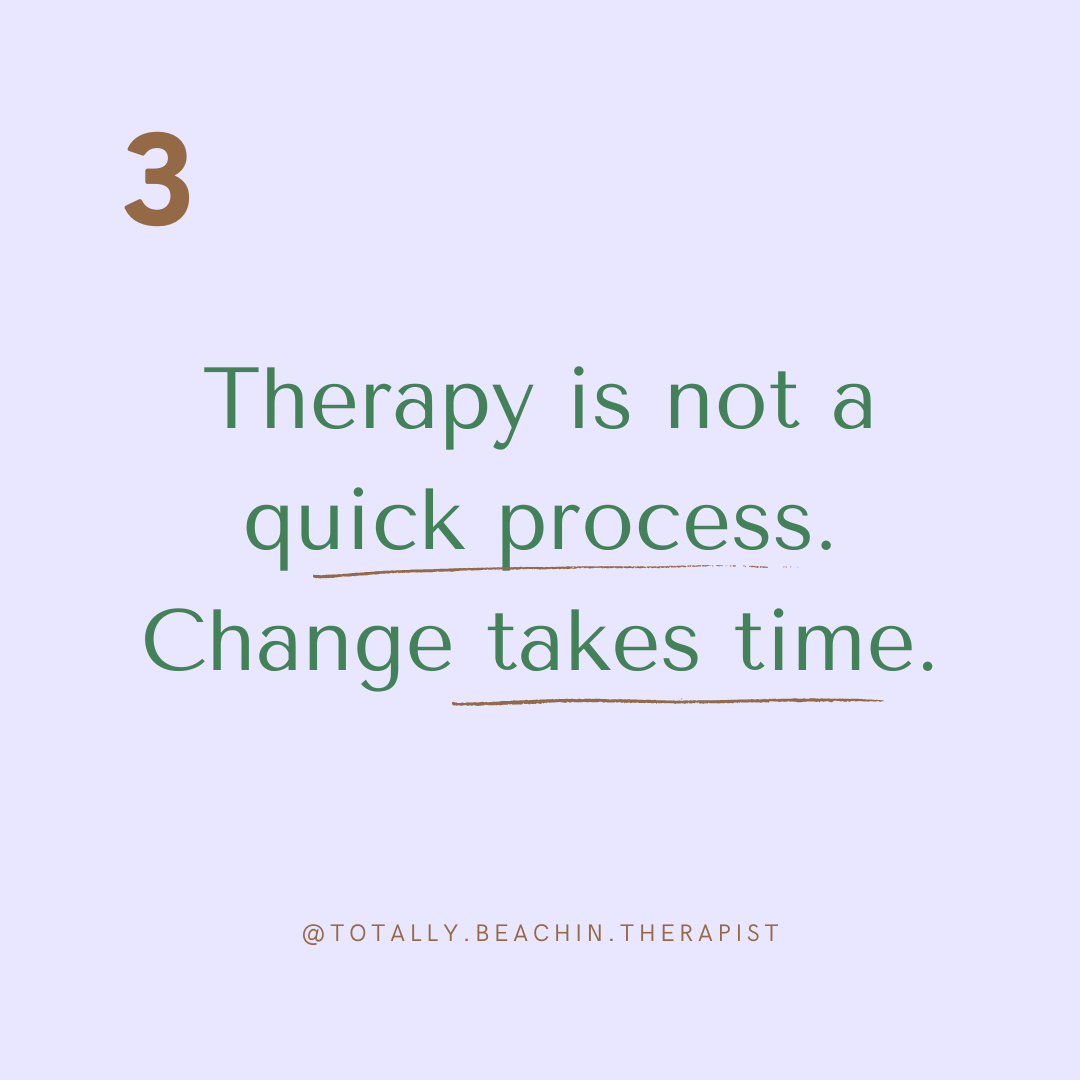What to Know Before Starting Therapy
If you follow me on instagram I have already started this conversation. I gave a brief insight into 3 things I wish everyone knew before starting therapy. Here, I want to give you even more insight into things I think you should know before starting therapy!
As a recap I posted this on instagram.
This a great starting point so if you want to know what I said about these go to my instagram @totally.beachin.therapist
But there is more to talk about, so let’s get into it!
1.Your Therapist Should be in Their Own Therapy,
First of all, we all got our own shit so we would hope your therapist is doing and has been doing their own work. Secondly, you don’t have to worry about they are holding for you.
It is your therapists responsibility to take care of themselves, not yours. Also, you want to work with someone who has been on their own journey and understands how difficult this is and beliefs in the work and power of therapy.
2. There is a Reason Therapists Advertise Certain Expertise's
It’s what they know most and can help most with. Search for your right fit, this is an important relationship. Honor and value yourself by finding a therapist who is exceptionally knowledgeable in your needs!
3. Your Therapist is Human, Which Means Mistakes Might Happen.
Yes, they might say something you need to address and you should have that safety to call it out! I always like to tell new clients that you have the safety to call me out if I am getting your story wrong or if I am misunderstanding or misspeaking. Make sure your therapist provides that safety!
4. Go Even on the Days You Feel Like You Have Nothing to Talk About
Sometimes when you feel like you have nothing to talk about your therapist can help to guide you in that. BUT, there is differences between not knowing and being closed off to therapy.
I have met with some clients where they have had some of their biggest break throughs on days they almost cancelled because they didn’t know what they were going to talk about. People have said “wow, to think I wasn’t going to come today”!
Plus your therapist keeps notes, meaning there is probably meaningful things you have said in the past that you therapist will be eager to re-visit.
5. You Might Not Vibe With Your Therapist
Bring this up in session because people don’t know what they don’t know. Practice stating your needs in this safe space. A good therapist will be receptive to your needs and essential there are two things you can expect to happen.
1- your therapist will adapt and provide you said things and/or ask you if it is ok that they have a learning curve for your needs.
2- they will work with you on referring you to someone who can provide you your needs and to your standards for what you deserve. p.s this is good practice in getting what you deserve! Lean into that.
6. Be Prepared
You want to be set up for success for your session. You only get your therapist once a week for 50 minutes! A lot of life happens between you all meeting!
I always suggest to my clients to take notes throughout the week for what felt meaningful for you so you can remember and we can visit in session!
I also suggest to my clients to have a functional ways to take notes DURING the session so they can remember meaningful things we talk about and its not forgotten!
7. You’re Allowed to Change Therapists.
This goes into what I was just talking about at #5. Being referred to a different therapist isn’t a rejection of you! They’re in the business of you and referring you elsewhere is for your benefit.
Requesting a switch in therapists is you honoring your needs. It is your therapists position to accept and understand. It is not uncommon a therapist will check in if there was a factor in this. This is not to convince or shame you, but an attempt to understand maybe where their weak points are and what they could continue to work on.
It is also within your autonomy and choice if you share.
8. Break Throughs Don’t Happen Every Session (this is why you go weekly).
“I am spending money and time and break through don’t happen every session?!”. Correct! You go weekly because each meeting more and more and more and more and…you get, more insight occurs.
As this happens, somewhere down the line, BOOM.
Yes, that break through happens. After all that work you put in, vulnerability, and insight, it all connects and then IT makes sense.
9. You Don’t Have to Wait to Start Therapy Until Their is a “Big” Problem.
Ok so, western medicine is built on addressing it when its a concern, which means it is not preventative.
How many of you all have experiences of going to a doctor and arguing to get blood work, for your concerns to be heard, and essentially because you aren’t “severe” it essentially isn’t a priority. Well, therapy is *supposed to be different. This is also why so many therapists don’t accept insurance.
For many insurances and specific plans you can get therapy reimbursed, and receive a superbly and in many cases should be able to get reimbursed for your out of pocket pay. (this is noted this is from a privileged standpoint and understood there needs to be work for more quality care and assess to therapy that is accessible without sacrificing therapist or client needs). But therapist tend to not accept insurance because insurance tend to want to see proof there is a “Big Problem”.
Ok back on my main topic…by going into therapy before a “big” problem/difficulty arises youre able to get ahead on coping skills, insight, and more to handle life and maybe avoid as many “big problems”. Fun fact, majority of couples come into therapy when there has been a problem going on for on average of 6 years (more here).
*supposed to, because this is an ideal framework but does learn into a de-colonized (add link to blog) sense that not everyone practices from.
10. We Will Talk About Your History.
Ok, you have made it this far amazing!
So some therapists stay much more in the now of things and if that sounds like a therapist you prefer, maybe look for someone who is “solution focused”.
Majority of therapists will find it necessary to gain insight into your history. This insight honestly is for both you and the therapist to help understand your intersectionality, identity, values, pain, and history. Your story is important and valid, your therapist wants to hear that.
I belief that stories are such an important part of identity. For many cultures, mine included, their ancestors live on through storytelling. I like to lean into that practice and become strong in you telling your story. So, be prepared, you will talk about your history, but the therapist will follow you lead in where you are, you don’t have to share if you’re not ready.
This is your journey.




